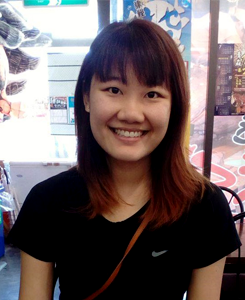I decided to focus on low dose radiation research because it is a developing field that is important, yet controversial. Effects of high dose radiation are well documented and understood from the atomic bombings in Hiroshima and Nagasaki, as well as the Chernobyl incident. However, we are uncertain about the effects of low and very low dose radiation. There are conflicting theories from both ends, with some supporting hormesis (positive effects seen from adaptation to low dose radiation) and those believing in the Linear No-Threshold model (harmful effects seen at all doses). More research is needed to establish the significance of these results, and how it would translate to improving personal protection and emergency response in the event of a nuclear accident. Low dose radiation research is hence very applicable in Singapore as nuclear power is being explored or employed as a green energy alternative in Southeast Asia.
For my current research, I am interested to find out the effects of chronic inflammation on chromosomal aberrations induced by ionizing radiation. Ionizing radiation usually generates chromosomal aberrations in cells, and the number and type of chromosomal aberrations can be used to estimate dose received. However, external factors such as chronic inflammation, can also induce chromosomal aberrations. It has been observed in patients with diabetes and obesity, accompanied with chronic inflammation, that their wounds and burns are aggravated with radiotherapy. By analyzing biomolecular and histological changes in different mouse models, I would be able to understand the relationship between chronic inflammation and radiation effects.


